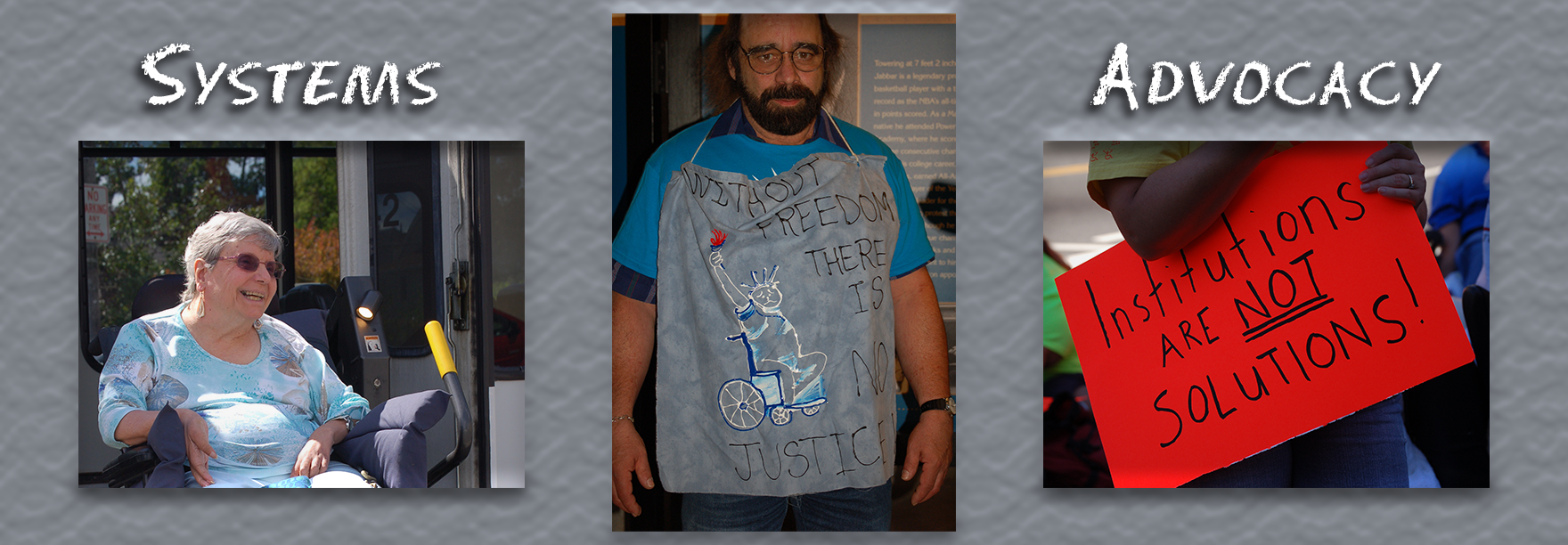Current Issues are linked to both legislative agendas as well as the policies and practices of governmental agencies and community based services that have a mission to serve people with disabilities. STIC educates people and supports systems advocacy efforts in a wide range of areas.
Disability Integration Act
The Disability Integration Act (DIA) is a civil rights, bipartisan and bicameral legislation, introduced by Senators Charles Schumer, Minority Leader (D-NY) and Cory Gardner (R-CO) in the Senate and Representative Jim Sensenbrenner (R-WI) in the House, to address the fundamental issue that people who need Long Term Services and Supports (LTSS) are forced into institutions and losing their basic civil rights. The legislation (S.117, H.R.555) builds on the 25 years of work that ADAPT and other disability rights advocates have done to end the institutional bias and provide seniors and people with disabilities home and community-based services (HCBS) as an alternative to institutionalization. It is the next step in our national advocacy after securing the Community First Choice (CFC) option.Update: The bill was re-introduced in the current Congress on January 15th. There are 24 Senators signed on as of the end of January, 2019. Both NY Senators are on the bill. Congressman Brindisi, who represents the 22nd. District, was an original co-sponsor.
Money Follows the Person
Money Follows the Person Demonstration Program Act
In late January, 2019, H.R. 259, the Medicaid Extenders Act, was signed into law. The bill includes three months of funding for the Money Follows the Person (MFP) Program. As we know, three months is not enough to sustain the work of MFP, but it does provide a much needed extension while we continue our advocacy for a longer renewal.
The Empower Care Act (S548 / HR1342) was introduced to reauthorize the Money Follows the Person Demonstration Program.
Ask Senator Schumer, Senator Gillibrand, and Congressman Brindisi to co-sponsor these bills. Use our "Who Represents You in Congress" tool on our homepage for contact information.
Close the Judge Rotenberg Center
“The abuse of people with disabilities at the Judge Rotenberg Center in Canton, MA, drastically accelerated in 1990, when its infamous founder, Matthew Israel, devised a money-making patent that would apply painful shocks to residents at any time of the day – while they ate, when they showered, even while they slept – via a remotely activated device worn 24 hours a day. Israel promoted this abuse as behavior modification mostly on autistic people, and JRC soon became the only institution in the country to utilize aversive shocks despite overwhelming evidence debunking its effectiveness. Since then, JRC has been paid millions in taxpayer money to effectively traumatize unwilling residents. New York City alone throws $30 million annually towards JRC’s way to warehouse more than 120 of its residents. You may ask: “If this treatment is really torture, why is JRC still in business?” One answer may be that JRC pays thousands to lobby lawmakers and government administrators to turn a blind eye.”



